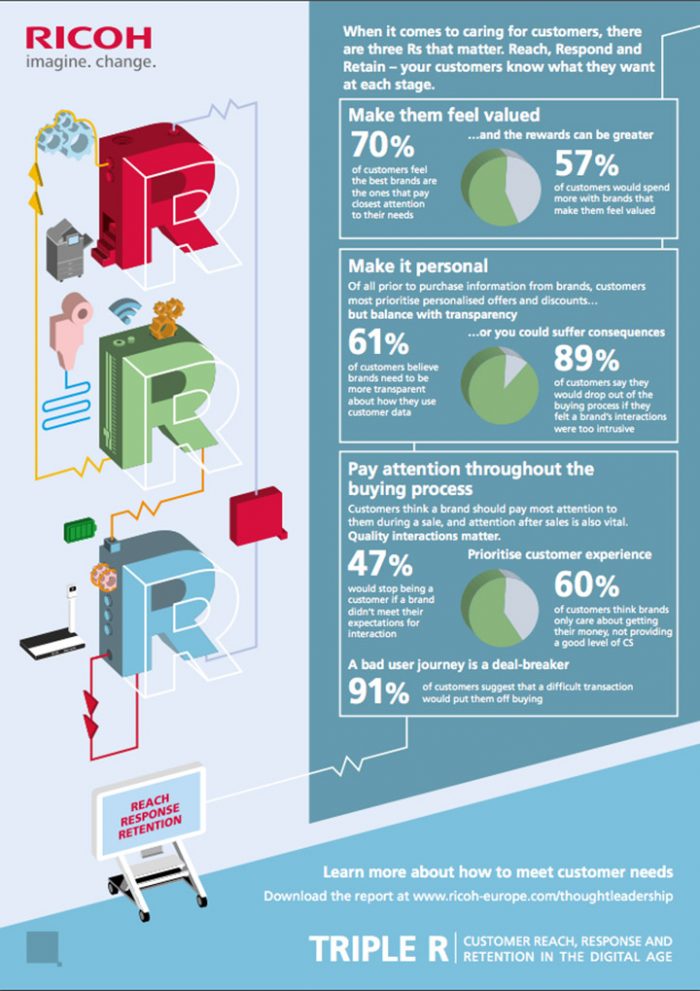Research shows that 57% of customers would spend more with brands that make them feel valued and that personal touch can be achieved by brands through events such as last week’s Amazon Prime Day, which treated Prime customers to exclusive deals and won loyalty and trust in return. Here are the lessons Amazon Prime Day has taught marketers of other brands:
Last week’s Amazon Prime Day, the online retail giant’s third annual one-day flash sale, dominated the retail space. These sales events showcase the vital importance of building a trusting customer base, something Amazon has excelled at.
 Consumers see more than 5,000 advertisements every day. All that noise makes it difficult for brands to cut through and for consumers to know who to trust. Events such as Prime Day do just that by treating customers like valued individuals, offering them exclusive deals. The impact on Amazon’s brand is considerable.
Consumers see more than 5,000 advertisements every day. All that noise makes it difficult for brands to cut through and for consumers to know who to trust. Events such as Prime Day do just that by treating customers like valued individuals, offering them exclusive deals. The impact on Amazon’s brand is considerable.
Ricoh Europe recently commissioned a study of the opinions of European consumers with regard to major brands, where consumers rank how they build quality relationships with them before, during and after purchase. Amazon was ranked as the third best company operating in Europe for these factors.
The top companies ranked in the research are (the same number shows joint placing):
1. PayPal
2. Yamaha Motor
3. Amazon.com
4. Apple
5. Samsung Electronics
6. Adidas
7. eBay
7. Microsoft
7. Alphabet (Google)
10. Sony
Further statistics from the research include:
· 68% of respondents can recall avoiding a product or brand after a bad customer service experience
· 50% of European consumers value personalised offers and discounts above all other factors when making a purchasing decision
· Nine out of 10 respondents would stop buying from a brand if they felt it was too intrusive during an interaction.

Lessons learned from Prime Day:
Amazon has clearly established a great reputation for customer service. We found that 57% of customers would spend more with brands that make them feel valued. Special treatment of Prime customers will therefore likely result in sustained purchases beyond the discounts and deals offered on the day.
Whether a brand sells to online consumers or business decision makers there are three essential steps for making your customers feel valued:
- Use data for detail – Without insight into a customer’s individual behaviour, any attempt to personalise your interactions with them will fall short, or even worse, appear fake. Start by connecting the dots in the data your organisation already has. Making interactions personal isn’t an issue that one part of the business can solve alone. Technology such as Customer Communication Management platforms, which deliver the right information to the right customer in the right format, goes a long way in adding that personal touch.
- Know when consumers value personalisation most – Nobody wants to feel bothered by a brand. 70% of consumers prefer brands to focus on their needs during and after the purchase. With that in mind, focus on personalised discounts and offers post-purchase to entice them back. In Amazon’s case, only Prime customers have access to Prime Day offers and discounts. Amazon knows the long-term value of a loyal customer far outweighs any single transaction.
- It’s very good to talk – If I know I’m speaking to a robot or shouting into an empty room, it can be incredibly frustrating. Brands must have that human touch to be seen as trustworthy. 41% of consumers choose to communicate with brands by email after making a purchase. Amazon’s customer service capabilities reflect this, offering a wealth of options for customers to interact with the brand after a purchase is made. Speed is also critical: 47% consider it to be a key determining factor for their future loyalty. Automated technology can prove vital in flagging and reacting to customer enquiries incredibly fast and consistently.
Fundamentally, each of these steps relies on some form of data collection and analysis. When it comes to customer communications, brands can be tempted to take a one-size-fits-all approach. But it’s the intelligent use of customer data to transform communications which can help build long-term customer loyalty and trust.
Our research also shows that 59% of customers believe brands tend to only care about their money and not the level of customer service provided. Many brands will look on with envy at Amazon’s market share and skills at building and maintaining customer relationships.
Cultivating a personalised, exclusive experience, enabled by technology, tends to delight the modern customer. How a business collates, manages and uses customer data for this end has never been so important – especially in a competitive digital-first world.
Have an opinion on this article? Please join in the discussion: the GMA is a community of data driven marketers and YOUR opinion counts.
Read also:
King of e-retail Amazon blazes an online spend trail
Personalised marketing: it’s good, but it’s not right (yet)








Leave your thoughts